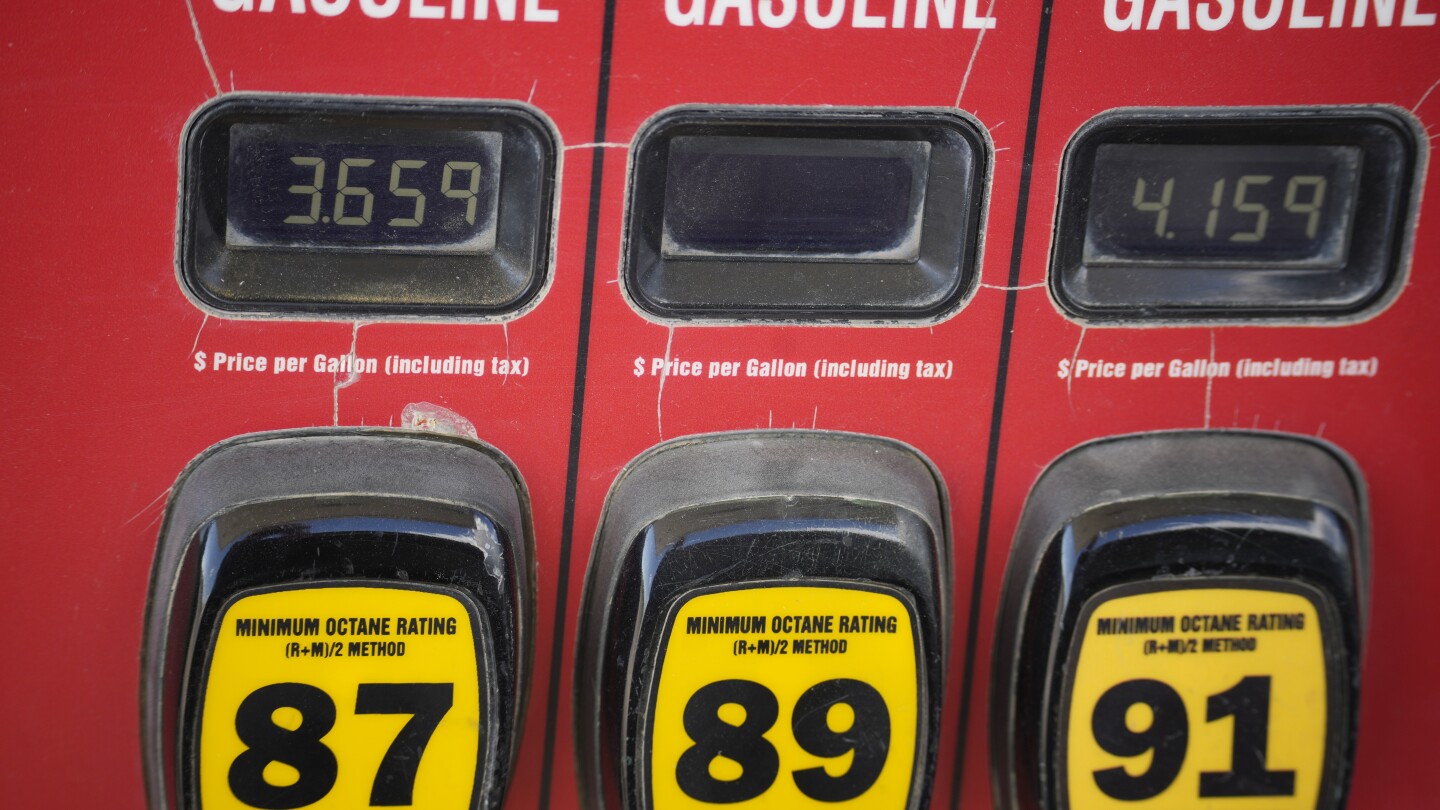While I genuinely feel bad for economically disadvantaged workers with long commutes in used vehicles, I can’t help but notice most of the complaints about fuel prices come from people who: A. Shout down anyone trying to improve public transportation infrastructure by saying it can’t work in rural areas (it can, and has), and B. Own outrageously large personal vehicles that guzzle gas and houses with 2+ stall garages.
I’ll listen to complaining from anyone who doesn’t fall into one or both of these two groups.
Personally I think gas is still too cheap.
Gas should be prohibitively expensive. It’s price should reflect its impact.
Unfortunately this would crumble the entire US and possibly western economy. It works in most of the rest of the world because the commutes are smaller and the alternative transit is plentiful.
Yeah, we need to build the infrastructure.
Or let me correct that: Rebuild the infrastructure.
Even here in lowly South Dakota where I live, there was once a network of buses and trains that traveled between even small towns. That was all abandoned to appease the automotive gods.
Manitoba Canada used to have a decent train network from what i can tell, and now it just has nothing outside of Winnipeg
The only times I see people like me, who prefer owning a car “shouting down” people adcovating for better public transport, is when people suggest I should get rid of my car and ride a bus instead. A good public transportation system is a net-good for everyone, and in no way inconveniences me especially if I never even use it. It’s not busses and trains I have an issue with - it’s the naive city dwellers who thinks that because they get around just fine without a car then anyone would.
Thanks for providing an example of the type of person I’m talking about. You sound just like their self-centered asses! Good satire.
Why even bother responding to me if, instead of addressing what exactly you take issue with in my statement, you just immediately resort to insults?
The world and particularly the west desperately need to address their oil addiction. Business as usual is no longer acceptable.
I wonder if this will drive migrations patterns in the near future? Certainly US drivers tend to travel pretty far, every day, just to get to work. Will we see a trend of folks relocating to larger towns and cities for smaller or no automotive commute?
They say rich tech people fled to the suburbs during the pandemic so maybe this is how the vacuum fills? Though rents are going up in the city too and housing is pretty tight so maybe no vacuum anywhere:( Need more.
Maybe, but how the pressure of gas prices would interact with the cost of housing in areas where it would be possible to ditch or substantially reduce commutes by car is moot. Those areas are already expensive & oversubscribed, and are likely to become much more so as commuting by car becomes more costly.
If there is less need for city centre office space, cities could embark on building high density housing & amenities, but few cities will want to risk being earlier than others to go down that route.
I could more easily see an increase in the type of accommodation that exists in places like Hong Kong, with many people sharing a bunk-filled room, or many tiny rooms little bigger than a single bed all sharing a bathroom with the rest of the corridor.
oversubscribed
What an excellent point. I take that to mean infrastructure, specifically things like services. That would be a challenge to overcome especially if these new dwellers were not making more income. I hope bunkhouses do not become a standard, but I think the tiny room idea is pretty nice. I don’t need my own kitchen, either!
Have you seen the tiny rooms? They’re arguably more cramped & dangerous than the bunkhouses & a long way from traditional bedsits, though as a basic idea there’s no reason why they couldn’t be alright.
EDIT: no idea how this reply ended up here. Removing main body & hopefully can post it in the right place.EDIT EDIT: seems it was in the right place, so putting the main text back.
No, I actually had not heard of tiny rooms before so maybe I should be careful with what I wish for 😬 I have stayed in bunkhouses and had a mixed bag. Some were really nice, but one I remember being able to hold hands from our beds. It was pretty close. More like a barracks. I guess like anything else, good design matters!
I’ll look into the tiny rooms. I am now picturing those little pods on Tokyo…
☹️ that is so much worse than I thought
🤖 I’m a bot that provides automatic summaries for articles:
Click here to see the summary
The world’s second-largest oil supplier has slashed production by 1 million barrels a day since July and decided this month to extend the cut through the end of the year.
Leon said the Saudis will review the cuts each month — and could add barrels back if prices spike to levels that could seriously worsen inflation in countries buying oil.
Oil costs are keeping gas prices high even as driving demand drops with the end of summer vacations and plentiful gasoline stocks, according to auto club AAA.
Oil is Russia’s main moneymaker, so higher prices help the Kremlin pay for its invasion of Ukraine and weather sweeping Western sanctions aimed at crushing its wartime economy.
The recent rise in oil prices, along with a cutback in the discount that sanctions forced Russia to offer Asian customers, means Moscow will earn “significantly more revenue from those exports,” said Benjamin Hilgenstock, senior economist at the Kyiv School of Economics.
The administration is also in touch with domestic and international producers on longtime supply needs, trying to ensure that the risk of higher oil prices does not disrupt economic growth.
Saved 84% of original text.
That’s making gas more expensive for US drivers
yeah no kidding lol
How much are you paying at a gas station?
Here in Germany it’s 2€/liter
Gas near me is about $3.25 per gallon, which (assuming my math is correct) is about 0.82 Euro per litre.








